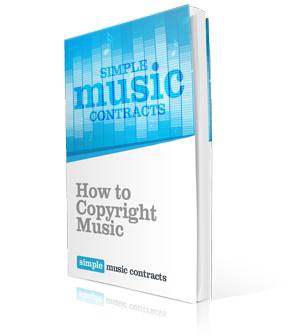Written by US Music Attorney with 20 Years Experience
Download Instantly in Word
Five New Contracts a Month
One Year of Updates
A Look At Songwriter Agreements
 Songwriters exist in many different forms on this earth. Some are lead singers of your favorite bands that you can recognize immediately, and some wrote your favorite song, though you’ve never even heard their name. And they exist everywhere in between, writing songs for themselves, co-writing with others, and writing songs just for other people. Without this diversity, chances are good that we’d have many less great songs in the world than we do.
Songwriters exist in many different forms on this earth. Some are lead singers of your favorite bands that you can recognize immediately, and some wrote your favorite song, though you’ve never even heard their name. And they exist everywhere in between, writing songs for themselves, co-writing with others, and writing songs just for other people. Without this diversity, chances are good that we’d have many less great songs in the world than we do.
Though there are many artists out there that write songs purely for their own enjoyment, songwriting can be, obviously, a very lucrative venture. And some of the most successful songwriters only write for other artists to perform. But how do the writers have their songs recorded by others? This is often where a publisher comes in, to take songwriter’s songs and present them to artists to perform and, hopefully, turn into the next number one hit. Publishing houses make a lot of money doing this, and writers know that they can, in turn, also make money by partnering with a publisher. Writers often sign exclusive agreements with publishers, providing songs directly to (and only to) a specific publisher, who then sells the songs to other artists. These exclusive agreements will have many different stipulations depending on the writer, publisher and other circumstances, but must touch on the following topics:
Term
The duration of the contract is very important, as the writer cannot sell songs to any other entity during this time. Length of the contract will be discussed before the contract is written.
Rights of the Publisher
As with many specifics of songwriting contracts, the actual language of this section will vary widely depending on what the two parties agreed to beforehand. Usually, these will state who obtains and owns copyrights to the work, and additional rights the publisher has with the compositions. The contract will often state the publisher has power of attorney over the songs in the writer’s name.
Compensation
Again, this will change with each situation, but this section will state what the writer will get paid for presenting compositions to the publisher. Usually expressed in percentages, the amount owed to the writer will be broken down into different categories, such as money received from the wholesale selling price, net sums and from printed sheet music. Additionally, the contract will stipulate when the publisher must pay the writer.
Collaboration
Since many writers co-write with other songwriters, songwriter contracts will often include notes of what will happen when there is a co-writer on a song. Often this will state that separate agreements must be agreed to at the time a co-written song is submitted.
Depending on the specifics of the contract, there will be many additional clauses. These will state any obligations the writer is under, that the writer is an independent contractor and that confidentiality agreements are in place. As these contracts can be very complex and cumbersome, it is crucial that there be a mutual agreement between the two parties before the contract is written, and that, with the help of a music lawyer, all the language is understood. When hit songs are written, both parties have the opportunity to gain greatly from songwriter contracts, so it’s important these contracts are fair in the beginning.

